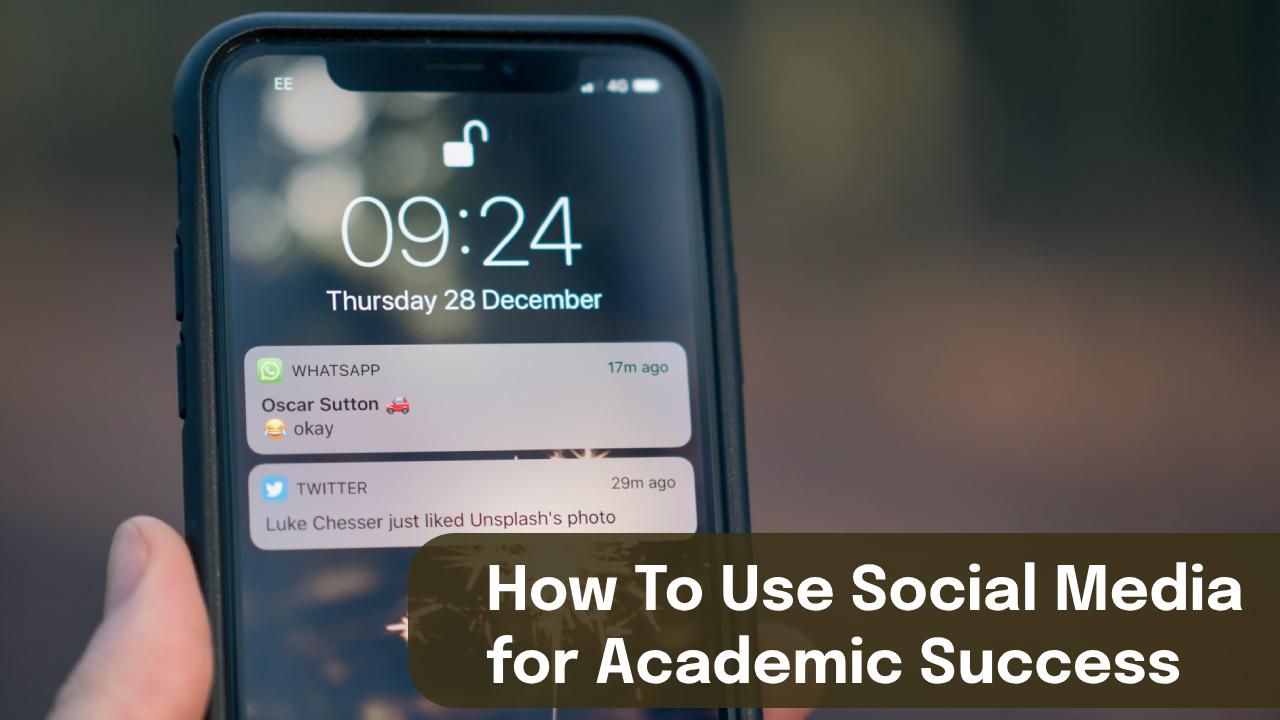Social media is a huge part of your daily life as a student. It’s where you catch up with friends, follow trends, and share experiences. But, have you ever thought of it as more than just a platform for entertainment?
Believe it or not, social media holds immense potential for your academic growth. It’s not just about likes and shares; it can be a powerful tool for learning, networking, and staying informed. Let’s explore how you can turn your social media savvy into a secret weapon for academic success, flipping the script on the usual view of it as just a distraction.
The Educational Potential of Social Media:
Social media is often seen as a hub for entertainment, but through its words, we discover an invaluable resource in the digital age: it’s also a goldmine for educational purposes. If you’re swamped with assignments, consider hiring original assignment from EssayPro to free up some time. This way, you can delve into the academic benefits of social media without feeling overwhelmed.

Platforms like LinkedIn offer networking opportunities with professionals and academics, while Twitter can keep you updated with the latest industry news and academic discussions. YouTube provides countless educational channels, and even Instagram can be a source of visual learning and inspiration. Each of these platforms can be a window to new knowledge, research ideas, and learning communities, transforming the way you engage with your studies
Choosing the Right Platforms:
Choosing the right social media platforms is crucial for academic enrichment. LinkedIn, for instance, is a treasure trove for connecting with professionals and academics in your field. It offers insights into career paths, industry trends, and even research opportunities.
Twitter can be a dynamic resource for real-time academic discussions and access to a global network of educators and thought leaders. Following relevant hashtags can keep you updated with the latest in your field. Then there are academic forums like ResearchGate or Academia.edu, where you can dive into a world of scholarly articles, connect with fellow researchers, and participate in academic discussions. Each platform has its unique strengths, making them invaluable tools in your educational arsenal.
Building an Academic Network:
Building a strong academic network is like creating a map that guides you through your educational journey. By connecting with peers, educators, and professionals in your field, you open doors to new opportunities, insights, and resources. This network can be a source of support, advice, and inspiration.
Start by following influential figures and educators in your field on platforms like LinkedIn and Twitter. Engage with their content, and don’t hesitate to reach out with thoughtful questions or comments. Join academic groups and forums related to your studies; these can be great places to share ideas and get feedback. Remember, networking is about quality, not just quantity. Focus on building meaningful connections that enrich your learning experience.
Accessing Educational Resources and Information:
Social media can be a treasure trove of educational resources if you know where to look. Platforms like Facebook and LinkedIn have numerous academic pages and groups dedicated to specific subjects. Joining these can give you access to a wealth of study materials, research papers, and engaging content relevant to your field of study.
On Twitter, following hashtags related to your course or industry can lead you to the latest research findings, academic articles, and expert insights. YouTube is also an excellent resource for educational videos and tutorials that can supplement your learning. By tapping into these resources, you transform your social media feeds into a vibrant, educational landscape, enriching your academic experience.
Participating in Academic Discussions and Group Studies:
Engaging in academic discussions and group studies on social media platforms can significantly enhance your learning experience. Facebook and Reddit, for example, host numerous study groups and forums where you can dive into deep discussions, ask questions, and share insights. These platforms offer a space for collaborative learning and exposure to diverse perspectives.
To actively participate, start by joining groups or subreddits related to your field of study. Contribute to discussions by asking thoughtful questions, sharing relevant articles, or offering your perspective on posted queries. Engaging regularly not only broadens your understanding but also helps in building a supportive community of peers who are on the same academic journey.
Using Social Media for Research and Staying Updated:
Social media is a dynamic tool for research and staying updated with the latest trends in your field. Platforms like Twitter are excellent for following hashtags related to your academic interests. These hashtags can lead you to the latest studies, discussions, and developments. You’ll find that experts and thought leaders often share their insights and research findings directly on social media, offering a window into cutting-edge knowledge.
Following academic pages and professionals on LinkedIn can also keep you informed about industry trends and new research. Engaging with these resources regularly ensures you’re not just keeping up with your field but actively participating in its ongoing discourse.
Balancing Social Media Use and Academic Work:
Balancing social media use with your academic responsibilities is crucial for success. If you’re feeling overwhelmed, consider using the best paper writing service for some of your assignments. This can free up time for both studies and responsible social media use.
Set specific time limits for social media to ensure it doesn’t eat into your study time. Apps like Freedom or StayFocusd can help block distracting sites during study hours. Additionally, allocate certain times of the day for social media browsing that don’t conflict with your academic work. This way, you can enjoy the benefits of social media without it hindering your academic progress. Remember, moderation is key.
Navigating the Challenges and Avoiding Pitfalls:
Navigating social media for academic success isn’t without its challenges. Misinformation can be a major hurdle. Always approach online information with a critical eye. Check sources and verify facts before accepting any information as true. This practice of critical thinking is key to avoiding the spread of false information.
Distractions are another common issue. It’s easy to get sidetracked by endless scrolling. To stay focused, set clear objectives for your social media use. Are you logging in to research a topic, or to connect with an academic group? Stick to your purpose and log off once it’s fulfilled. Remember, maintaining digital wellbeing is about using social media as a tool, not letting it use you.
Conclusion
In conclusion, social media, when used wisely, can be a powerful ally in your academic journey. By choosing the right platforms, building a strong academic network, accessing educational resources, and engaging in meaningful discussions, you unlock its full potential. Balancing its use with your academic work, staying alert to misinformation, and maintaining focus are key. Embrace these strategies, and watch how social media transforms from a distraction into a significant booster for your academic performance and knowledge growth.

I am Marry Soni. Since 2015, I’ve been a blogger, and I adore writing. I greatly enjoy writing about survey and login guide. I maintain numerous blogs, including https://takesurvery.com/. pdpanchal@gmail.com is how you may get in touch with me.





